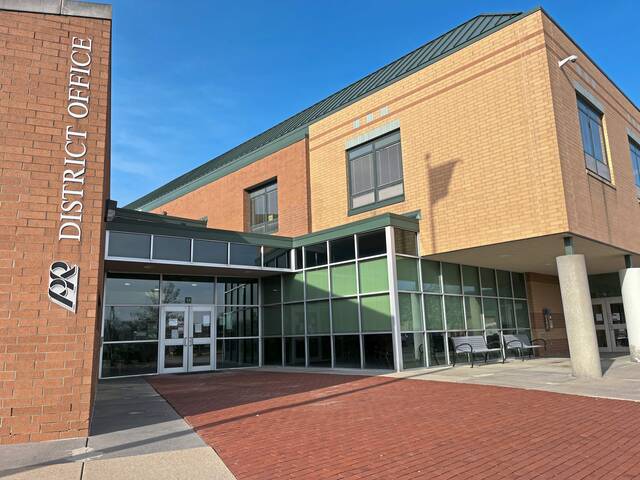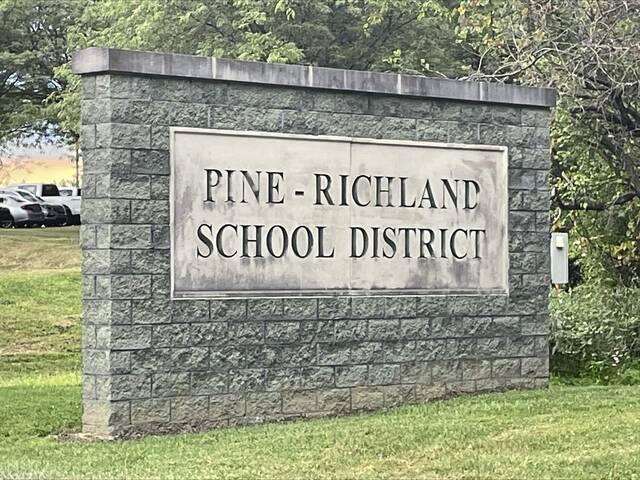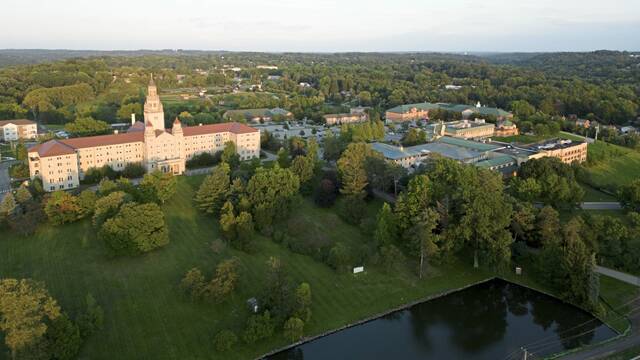While Pine-Richland School District administrators are saying a mix of a spending cuts and a property tax increase will be needed to close a $4.9 million deficit, more cuts are not expected to be possible in special education, where the district is serving more students with fewer staff.
In fact, rising costs for special education could give the district reason to seek approval for a property tax increase beyond its state-imposed limit, Superintendent Brian Miller says.
After a majority of the school board approved a budget for the current school year with no tax increase over Miller’s call for a 2.1% hike, Miller and administrators are saying a 3.5% increase at least will be needed for the 2026-27 school year. That is expected to be the district’s inflation limit set by the state, known as the Act 1 index.
However, Miller has said the district could qualify to exceed that limit based on special education costs, which was the subject of the second of four board meetings focusing on the district’s finances. It could amount to an additional fraction of a percent, for an increase of 3.7% or 3.8%, he said.
“We have to deliver the services. We’re accountable to the law,” Miller said.
While the district’s overall enrollment has been relatively stable over the past five years, increasing just under 1% from 4,562 to 4,600 students, the number of students in special and gifted education categories increased by nearly 25%, from 1,688 to 2,106, according to the district.
That includes a 25.5% increase in special education students, the largest category, from 636 to 798. The number of gifted students increased 10%, from 423 to 466.
The district started the school year with six fewer special education staff members but is now down five. There are now 38 special education teachers and two intervention specialists, each down by one. The district started the year with 71 paraprofessionals and personal care assistants, a reduction of four, but is now at 72 because of student needs.
With gifted caseloads nearing capacity in fourth through 12th grades, an additional position may be needed for the district to stay in compliance.
“The current level of staffing across special education and student services, we’re meeting the needs of our students,” said Maura Paczan, director of student services. “The number of students in special education has increased. However, last year we were able to decrease staffing levels based on student needs. At this point in time, we don’t anticipate any further reduction of staffing.”
The district is at some of its lowest staffing levels in 15 or 16 years, Miller said.
“We don’t believe there is much here when it comes to reducing any more,” he said. “We feel like we are very efficient but importantly very effective in delivering the services.”
The district’s special education cost — including personnel, services, tuition and transportation — has increased by nearly 39%, from $13.2 million in 2020-21 to $18.3 million in 2024-25. Of the $18.3 million, about $1.2 million, or 6%, is for gifted education.
For 2024-25, special and gifted education accounted for about 16% of the district’s $113.1 million budget.
Local funding pays for 80% of the gifted and special education cost, with 20% coming from state and federal sources.
“Special education is required but not largely funded by federal or state government,” said Greta Kuzilla, assistant director of student services and special education. “The local funding made up the majority of what we spent.”
Just one student coming into or out of the district can have a dramatic impact. Kuzilla cited an example of a student who moved in last year and needed specialized services, totaling $99,000 in cost. That included $43,000 for tuition, adding a small bus for transportation and, because of behavior issues, $12,500 for a bus monitor.
“That happens every year,” Paczan said. “Students move in and we have to meet their needs because it’s our ethical and legal responsibility.”
The next finance meeting exploring the district’s capital funding plan, debt position and refinancing opportunities, and consideration of new debt, will be held at 6 p.m. Oct. 20. Transportation and tuition will be discussed during the fourth and final meeting on Nov. 10.








